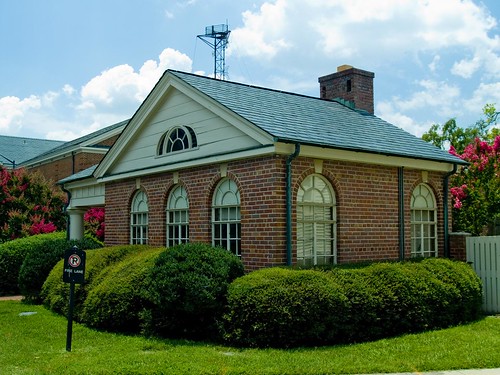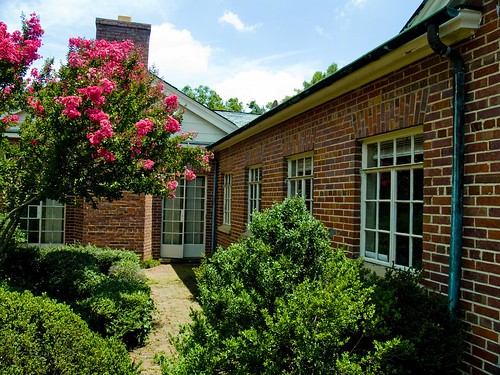
West House on campus at UNC-CH, before its August, 2006 demolition.
The West House Coalition reiterates our support for the Arts Common and its programs, that we believe the Common can support those needs without sacrificing West House, and that it seems clear Arts Common architects were never asked to consider incorporating the house into the Common -- an exciting challenge for any firm. Since last January we have heard from numerous folks in all stages of planning and public debate that claim West House was seldom, or only peripherally discussed.
Paul Kapp was hired by UNC after the house's fate was sealed. His recent guest column in The Chapel Hill Herald and comments in The Daily Tar Heel imply that West House preservationists insult Carolina's preservation record. We have publicly praised Carolina's preservation activities, including Mr. Kapp's hiring. Observing the quality restorations of our beautiful historic buildings inspired our group to take up the house's fate. It should be noted, master planners also sought to demolish Smith and Swain Halls until Myrick Howard of Preservation North Carolina insisted that they and West House should be saved. Indeed, the Y-Court, also slated for demolition, was saved by an enormous outcry from students and alumni.

West House garden view
It's important to clarify that West House does not sit on top of any utilities. The house was built in 1935 on private property before any utilities were underground. Utilities are under at least one, if not all, of the myriad Music Building footprints (and despite protestations otherwise, the building's architects confirm no footprint is yet set).
West House represents one-third of Carolina's history with many noted historic associations. During the last two home football games, alone, the Coalition has gathered more than 500 signatures from alumni, students, faculty, employees, and visitors in support of the house. We've only just started.
Joe Herzenberg
Chapel Hill

Demolition of West House, August 17, 2006.
(Editor's note - the efforts of the Save West House Coalition were ultimately defeated by the tear-down-the-past, uncaring, shortsighted agenda of the UNC-CH administration under Chancellor James Moeser.)







No comments:
Post a Comment